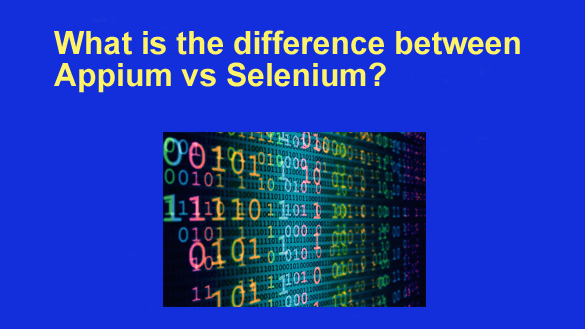 In the software testing world, automated testing tools are essential to application quality and reliability. Appium and Selenium are two of the famous frameworks in the discussions of automated testing. Though they have been meant for similar purposes, both have different features and use cases.
In the software testing world, automated testing tools are essential to application quality and reliability. Appium and Selenium are two of the famous frameworks in the discussions of automated testing. Though they have been meant for similar purposes, both have different features and use cases.
This article explains the fundamental difference between Appium vs Selenium to find out which tool might be the best fit for your testing needs.
The Basics: What are Appium and Selenium?
Before diving into the differences, let’s briefly introduce these two testing frameworks. Selenium is a widely used open-source tool for automating web browsers, primarily focused on web application testing.
On the other hand, Appium is an open-source tool designed for automating mobile applications, including native, hybrid, and mobile web apps.
Platform Support: Web vs. Mobile
One of the major differences in this Selenium vs. Appium comparison has to do with the platforms that they support.
Selenium has been advanced for web application testing and thus supports a wide range of web browsers, namely, Chrome, Firefox, Safari, Internet Explorer, and so on. It works perfectly in automating interactions with web elements and checking the functionality of web applications on these different browsers.
However, Appium operates on more than just web browsers. Though it can operate on mobile web applications, Appium can fully utilize the capability of automating native and hybrid mobile applications on either iOS or Android platforms.
Language Support and Ecosystem
Both Appium and Selenium support a wide number of programming languages, which creates a lot of convenience for developers and testers to perform test script development in their favorite language.
For instance, Selenium supports a wide array of languages: Java, Python, C#, Ruby, and JavaScript. This wide range of languages helped Selenium build a large and active community with extensive documentation and a wide offering of third-party tools.
Since Appium is built on top of the Selenium WebDriver protocol, much of the language support that exists for Selenium carries over to Appium. This means that teams comfortable with using Selenium can actually pretty easily pick up and apply Appium.
Testing Approach and Architecture
The testing approach and underlying architecture form another key area of difference when comparing Selenium vs Appium.
Selenium interacts directly with web browsers through browser-specific drivers (like ChromeDriver for Chrome or GeckoDriver for Firefox). This direct interaction allows for efficient and fast execution of test scripts on web applications.
Appium takes a bit different approach by being set up as a client-server architecture. The Appium server is used as a middleware in between the test scripts and the mobile device or emulator. This architecture enables Appium to provide the same API for both Android and iOS platforms, easing the pain of creating cross-platform mobile tests.
Conclusion
In summary, Appium and Selenium are equally great options, but again, everything depends on the requirements. Use Selenium when web application testing with a number of browsers forms the substantial bulk of your test coverage.
On the other hand, use Appium for functional mobile app testing or when you need to ensure that web applications are compatible with mobile devices.